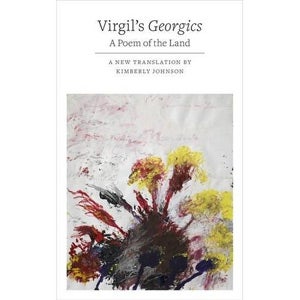Georgics, By Virgil, translated by Kimberly Johnson
A fresh look at a place in the sun

At this bleak season, the dreams of countless northern Europeans turn to Italy, imagined as a blessed land of "spring eternal, and summer in unwonted months". In this golden realm of lush pastures, wooded hills and succulent produce, lovingly tended farms surround citadels of art and culture, "with rivers underflowing ancient walls".
If our lingering vision of the bountiful southland has a single origin, it lies in the long Latin poem from which those lines come. The Mantuan poet Publius Vergilius Maro sat firmly, and profitably, in the camp of Octavian – soon to rule as the first Roman emperor, Augustus – in the civil wars after Julius Caesar's assassination. In 37BC, Virgil had finished his pastoral poems, the Eclogues. Over the next eight years, living near Naples, he composed the four books of the Georgics. After this eulogy to home-grown virtues, he would go on to mythologise Rome's imperial might in the Aeneid.
This epic but intimate poem on all the arts of husbandry and cultivation – raising crops, growing vines, tending cattle, keeping bees – would fix for two millennia an ideal of Italian country life. If, this bleak midwinter, you catch yourself pining for a fantasy summer in that perfect Tuscan villa, you have the Georgics to thank or blame.
Virgil's "poem of the land" has shaped the way that English poets write about nature and the countryside since the Renaissance. One virtue of Kimberly Johnson's superbly colourful, rhythmic and readable new translation is that she finds a way of feeding the Virgilian strain of English verse – from Milton to Wordsworth and beyond – back into her lines. Virgil does show the dark side of the rural idyll too: the snakes and wolves, the perils of drought and storm, the horror of pestilence. Yet his vision of the good, green life has weathered two millennia. Still we yearn for "a carefree peace" amid happy country folk, where "departing Justice left her last footprints upon the earth". Back to those brochures...
Join our commenting forum
Join thought-provoking conversations, follow other Independent readers and see their replies
Comments
Bookmark popover
Removed from bookmarks